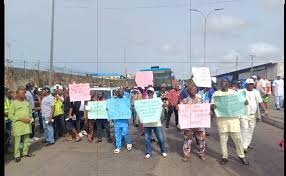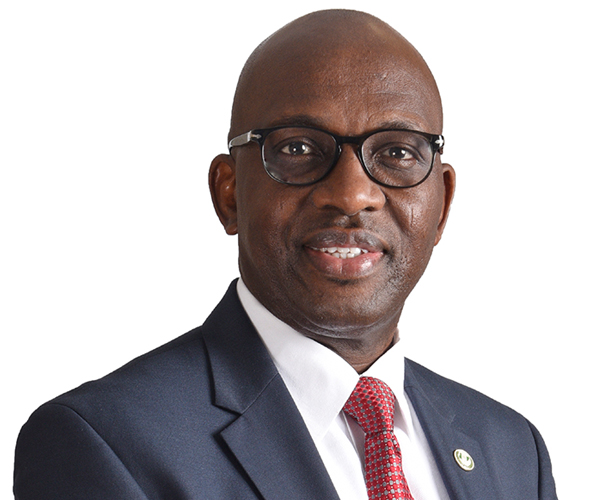
Oscarline Onwuemenyi
29 June 2016, Sweetcrude, Abuja – Nigerians are becoming increasingly alarmed at the worsening state of electricity supply across many states, which has left millions of homes and businesses in darkness, sometimes for several days at a stretch. The growing sense of frustration is made sharper when these consumers, many of which do not have meters, are sent exorbitant electricity bills at the end of the month, which they must pay or face the risk of disconnection.
Consider also that the collapse in the nation’s power sector, happening just months after consumers witnessed a more than 45 percent hike in the tariff for electricity, and coming right on the heels of an increase in the pump price of petrol which serves as fuel for generators, makes it very hard for many families to swallow.
Indeed, the terrible state of electricity generation and distribution across the country has prompted widespread condemnation of the government and regulators in the sector. A former human rights activist and now Senator of the Federal Republic, Shehu Sani has expressed deep concern over the darkness being experienced across the country.
According to Sani, no excuse by power sector operators, including the regulatory agencies, was cogent enough to substantiate the hardships that Nigerians were passing through.
Describing the huge drop in the power supply as unacceptable and embarrassing, he called on President Muhammadu Buhari to rethink his way towards appointing a Minister who is not only an electrical engineer but who has the knowledge of the industry. “We are in a state of paralysis, and there is urgent need to appoint a reputable electrical engineer to manage the affairs of power, independent of other responsibilities”, he said.
Sani added that “Distribution Companies (Discos) are now distributing darkness despite increment in electricity tariff; private power investors have failed the nation by moving manageable power epilepsy to a complete paralysis.”
He called for a review of the sale of defunct Power Holdings Company of Nigeria assets, noting that the privatisation of power sector had only brought untold hardship to Nigerians.
He called for the setting up of an energy task force responsible for immediate technical and financial intervention in the power generation, transmission and distribution of power in the country, even as he urged the government to invest in renewable and non-renewable energy.
Meanwhile, a civil society group, the Coalition Against Corrupt Leaders (CACOL), has described as insensitive, provocative and illogical the spate of power system collapses despite the hike in the tariff of electricity.
According to a recent statement issued by the Executive Chairman of CACOL, Comrade Debo Adeniran, noted that in spite of public outcry against any hike, the power sector under the Ministry of Works, Power and Housing superintended upon by Mr. Babatunde Fashola, former Governor of Lagos State has gone ahead to illegally impose a tariff hike on electricity on Nigerians for services not rendered to them.
“This is flagrant and audacious corruption in a situation where the government is pontificating that it is against corruption and illegality.
“Mr. Babatunde Fashola, should be told that the Ministry he superintends over is not meant for the kind of antics that he got away with in Lagos state when he was governor and trampled roughshod on the peoples’ right and public opinion, this is Nigeria, this is National and it is hugely above the microcosm that he evolved from,” he said.
“We make bold to say with every sense of responsibility that it’s the PHCN, the DISCOs, NERC that owe Nigerians money and apologise for not rendering services that they received money for and continue to receive money for, albeit, forcefully. Therefore we reject this hike in electricity tariff in totality, we demand that the power supply should be made available and accessible to all and a billing system that will be transparent, reasonable and commensurate to consumption.
“The Discos and NERC can take a cue from Telecommunication sector by providing meters; fixing the cobweb-like cables that dangle over the heads the people, mount poles etc. first, any other approach is like putting the ‘cart before the horse’ and therefore illegitimate and irrational,” he noted.
Speaking further, Adeniran said, “The Discos should be enforced to provide meter all its customers. The demand by the distribution companies for cost reflective tariff so as to remain in business should be placed side by side with effective service delivery, after which the issue of tariff increase can now come.
“Until we fix our power sector, all the talk about the industrial revolution plans and creating jobs/wealth for Nigerians, will just be mere talks and a waste of time. The power issue is overly dragging and by now ought to have been a thing of the past. All hands must be on deck to make sure Nigerians have stable power/electricity supply.’’
In the meantime, Nigerians are reacting to the growing darkness on social media with very emotional posts. Adeshida Yomi, on Facebook, noted that, “Honestly speaking, all those compelling Nigerians to pay for darkness shall never see brightness in their lives, however white their clothes and abode are, whoever helps them to say that they don’t deserve a curse will never escape the pains of blindness in soul, body and spirit! Can you imagine suffering the nightmares of your next bill even as you never enjoyed a complete 24 hrs supply from the last month’s payment?”
Another Facebook user, Okwy Onyia, commented saying that, These days, I see electricity once in seven days. It has never been this bad in my neighbourhood. Each time I write or call IKEDC (Ikeja Electricity Distribution Company) to complain about it, they reply that it was due to poor load; they distribute what TCN delivers! I didn’t bother about PMB’s democracy day speech because he didn’t give me light to watch it live on TV.”
Also, a group, the Legal Vanguard for Rule of Law and Democracy last weekend criticized the Minister of Power, Works and Housing, Mr. Babatunde Fashola over recent comments he made that the Federal government was powerless in the face of the latest electricity tariff hike by electricity distribution companies.
The group in a statement issued on its behalf by its President, Mr. Toluwani Adebiyi, said it was very disconcerting the statement credited to Fashola in which he insisted that there was no going back on the electricity tariff.
It added that the public outburst of the minister despite mounting inefficient service delivery by the electricity companies smacked of “executive class hypocrisy,” adding that it cannot intimidate the court.
According to the statement, “The minister who is a senior member of the Bar (SAN) who should be helping this government to respect the rule of law is found doing the contrary; we are taken aback that he is making such public boasts when final judgment on the matter before the court is just waiting to be delivered, he cannot do that to intimidate the court, neither can he pre-empt the mind of the court or dictate to the court.”
While reiterating the fact that the case is before a competent court of law with judgement soon to be delivered on the matter, Adebiyi said, “The increment is in violation of the enabling Act, for instance, Section 76(2) which allows only the licensee (Gencos, Discos) who are efficient to recover capital loss or bring increment.
“Have the licensee, the Gencos and the Discos, been efficient? When megawatts have been rising and falling, even to as low as zero Megawatt, just in May alone it fell below zero MW on six occasions, yet the Minister of Power is shamelessly boasting of an increment of which due process was not followed.”
Drawing comparisons to electricity supply in Nigeria and South Africa, the group said it is “laughable that the megawatts generated for a population of over 170million people have never gone beyond 5, 000 megawatts compared to South Africa of just about 50million, yet with over 44,000megawatts.
“This is in spite of about $20billion invested by the government between 2005 till date, with no significant improvement,” it added.
Nigeria’s power generation system hit zero megawatts six times in May this year, the highest level since 2009, reports have shown.
According to industry data obtained by our correspondent in Abuja, power supply to households and businesses across the country dropped significantly in May as the national grid recorded six total collapses and one partial collapse within the period.
The data further revealed that the national grid collapsed eleven times in the first five months of 2016, compared to six and nine times for the whole of 2015 and 2014 respectively, The Citizen reported. The most recent total system collapse was recorded on 1 June 2016.
Last Friday, it was reported that 11 power plants, including the Shiroro Power Station in Niger State, were not operating.
Other plants that were not operating included Afam IV & V, Geregu I, Omotosho I, AES, ASCO, Trans-Amadi, Rivers IPP, Gbarain, Olorunsogo I and II.
The Nigerian Electricity Supply Industry (NESI) yesterday said it lost 4,533megawatts (Mw) to gas constraints on Wednesday.
It remarked that but for ongoing vandalisation of gas pipelines that resulted in the gas shortage and 182Mw line constraint, the electricity market would have supplied 6,387Mw to its customers by June 22.
“On June 22, 2016, average energy sent out was 1716 MWh/hour (down by 138MWh/h). The reported gas constraint was 4533MW. The reported line constraint was 182MW. The water management constraint was 0MW. The power sector lost the estimated equivalent of N2,263, 000, 000 on June 22, 2016, due to constraints,” the daily industry summary NESI posted on its website yesterday explained.
It was however learnt that for the past two days, the sector has been recording zero megawatts in the last few weeks.
Due to an increased mix of gas shortages and pipeline vandalism, the Niger Delta had left about 4,400MW of the nation’s power generation capacity idle as of Friday, media reported.
Gas constraints prevented 3,661.1MW from being generated, while 355.6MW and 380MW could not be generated due to line constraints/load rejection by Discos and water management/maintenance, respectively.
According to the Chairman, Network of Electricity Consumers Advocacy of Nigeria, NECAN, Mr. Tomi Akingbogun, “We hear that most of the problems arise from the transmission lines because many of them are weak. They (power firms) are not concerned about the total system collapse because they are making money whether they supply electricity or not. So, why will they be interested in making sure that we have electricity?”
Speaking recently at a public lecture, the Minister of Power, Works and Housing, Mr. Babatunde Fashola, said: “In our road map to incremental power, we are looking at what we have and what we can get out of them. We have 26 power plants (including the AES plant), three of the plants are powered by water, the hydropower plants in Jebba, Kainji and Shiroro. The remainders are powered by gas.”
Fashola noted that “At the best of times, only about 78 turbines are generating power, which gave us our peak of 5,074MW. The problems have been identified as either damaged, unmaintained or unserviced turbines in the hydropower plants; and in the cases of gas plants, it is largely non-availability of gas, coupled with a lack of maintenance.”



